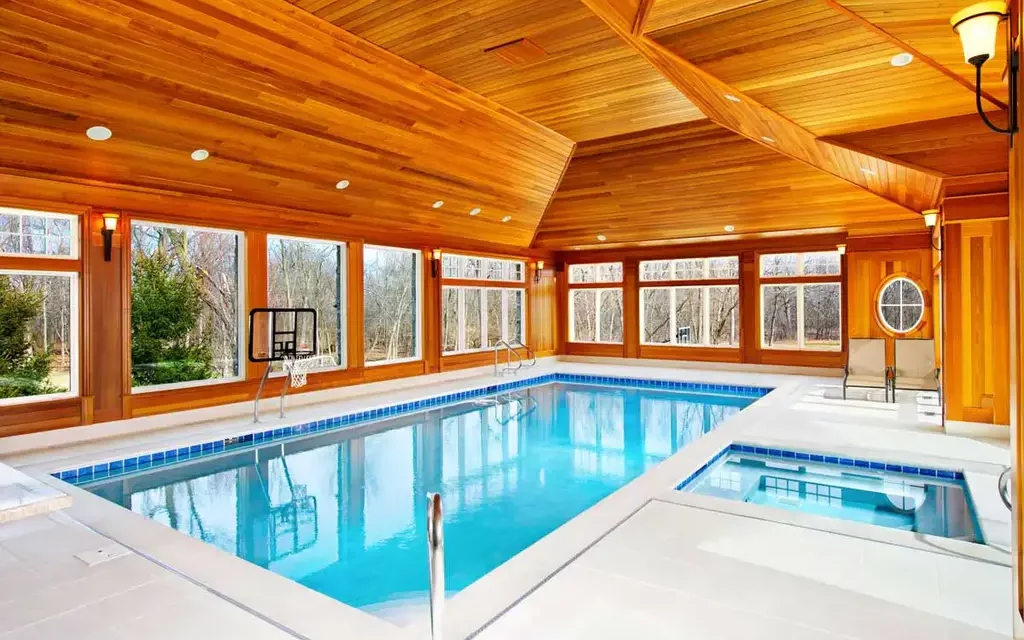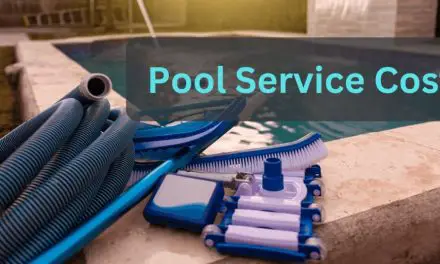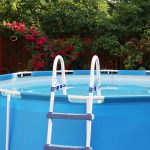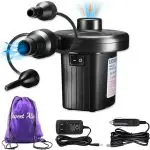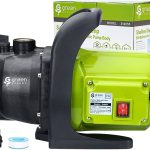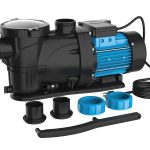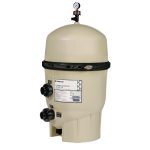To install a pool heater, follow these steps: run gas and electric lines, connect plumbing, and install diverter valves. Ensure proper safety measures are taken during installation.
Adding a pool heater can extend your swimming season and provide a comfortable water temperature. Whether you have an above-ground or inground pool, a pool heater is a great investment to enjoy your pool year-round. Before starting the installation process, make sure to choose the right type of heater for your pool, such as gas, electric, or heat pump.
Installing a pool heater may require professional assistance, especially for complex systems or larger pools. Always consult the manufacturer’s instructions and local building codes for a successful and safe installation.
The Benefits Of Installing A Pool Heater
Installing a pool heater offers several benefits, including the ability to enjoy a warm and cozy swim. With a pool heater, you can extend your swimming season and make the most of your pool all year round. Additionally, installing a pool heater can increase the value of your pool, making it more attractive to potential buyers if you ever decide to sell your property.
By providing a comfortable swimming temperature, a pool heater enhances the overall swimming experience and allows you to fully enjoy your pool, regardless of the weather. So, if you want to maximize the usability and value of your pool, installing a pool heater is a worthwhile investment.
Gas Line Pool Heaters
Gas line pool heaters are a popular choice for heating swimming pools. They work by using natural gas or propane to heat the water in the pool. One of the pros of gas line pool heaters is that they can heat the water quickly, allowing you to enjoy your pool even on cooler days.
Additionally, gas line pool heaters are more energy-efficient compared to other types of heaters. However, there are also some cons to consider. Gas line heaters tend to have higher upfront costs and require professional installation. They also require a constant supply of gas to operate.
The installation process for gas line pool heaters involves connecting the heater to the gas line and the pool’s plumbing system. It is important to follow the manufacturer’s instructions and ensure that the installation is done safely and correctly.
Solar Pool Heaters
Installing a pool heater can significantly enhance your swimming experience. When it comes to solar pool heaters, understanding how they work is crucial. These heaters harness energy from the sun to warm up your pool water. This eco-friendly option can help you save on energy costs in the long run.
However, there are pros and cons to consider. Solar pool heaters are dependent on sunlight, so they may not perform optimally in cloudy or shaded areas. Additionally, the installation process involves mounting the solar panels on your roof or the ground, connecting them to the pool’s plumbing system, and ensuring proper insulation.
It’s essential to follow manufacturer instructions and consider hiring a professional for a seamless installation.
Heat Pump Pool Heaters
Heat pump pool heaters are a popular choice for heating swimming pools. They work by extracting heat from the air and transferring it to the pool water. This makes them energy-efficient and cost-effective compared to other types of pool heaters.
One of the main advantages of heat pump pool heaters is their ability to maintain a consistent water temperature, regardless of weather conditions. They also have a longer lifespan and require less maintenance. When it comes to installation, it is recommended to hire a professional to ensure proper setup and avoid any potential issues.
The installation process involves locating the appropriate area for the heat pump, connecting it to the pool’s plumbing system, and configuring the electrical connections. Overall, heat pump pool heaters offer a reliable and efficient solution for keeping your pool comfortably warm.
Just make sure to follow the manufacturer’s guidelines and consult with a professional installer for a smooth installation process.
Considerations Before Installing A Pool Heater
Before installing a pool heater, there are several considerations to keep in mind. First, you need to assess the size and volume of your pool, as this will determine the heating capacity needed. Next, consider the energy efficiency of the heater to ensure it will not consume excessive amounts of electricity or gas.
Budget considerations are also important, as pool heaters can vary significantly in price. Lastly, compatibility with existing pool equipment should be taken into account to ensure seamless integration. By carefully considering these factors, you can choose the right pool heater and ensure a comfortable swimming experience for years to come.
Maintenance And Troubleshooting Tips For Pool Heaters
When it comes to installing a pool heater, regular cleaning and maintenance are essential. Keeping the heater clean and free from debris will ensure optimal performance. Common issues like low heat or no heat can often be resolved by checking and cleaning the filters, inspecting the gas or electrical connections, and ensuring proper water flow.
It’s important to follow the manufacturer’s instructions for maintenance and troubleshooting. However, if you encounter complex issues or are unsure about any aspect of the installation or troubleshooting process, it’s best to call a professional. They have the expertise to diagnose and fix any issues with your pool heater, ensuring it operates efficiently and effectively.
Taking these steps will help extend the lifespan of your pool heater and keep your swimming pool at the perfect temperature all year round.

Credit: californiapools.com
Frequently Asked Questions For How To Install A Pool Heater?
Can You Install A Pool Heater In An Existing Pool?
Yes, you can install a pool heater in an existing pool.
Is Installing A Pool Heater Hard?
Installing a pool heater is not hard.
Can I Install My Own Gas Pool Heater?
Yes, you can install your own gas pool heater.
Conclusion
Installing a pool heater is a great way to enhance your swimming experience and extend your pool season. By following the proper installation steps, you can enjoy warm water and comfortable swimming even during cooler months. Start by selecting a suitable pool heater based on your preferences and requirements.
Then, carefully plan the placement and installation process to ensure optimal functionality and efficiency. Remember to connect all necessary components, such as gas lines or electrical connections, and follow safety guidelines throughout the installation. Regular maintenance and proper operation will help prolong the lifespan of your pool heater.
With a well-installed and maintained pool heater, you can create a cozy and enjoyable swimming environment for yourself and your loved ones. So, why wait? Start planning and installing your pool heater today, and make the most of your pool year-round.

